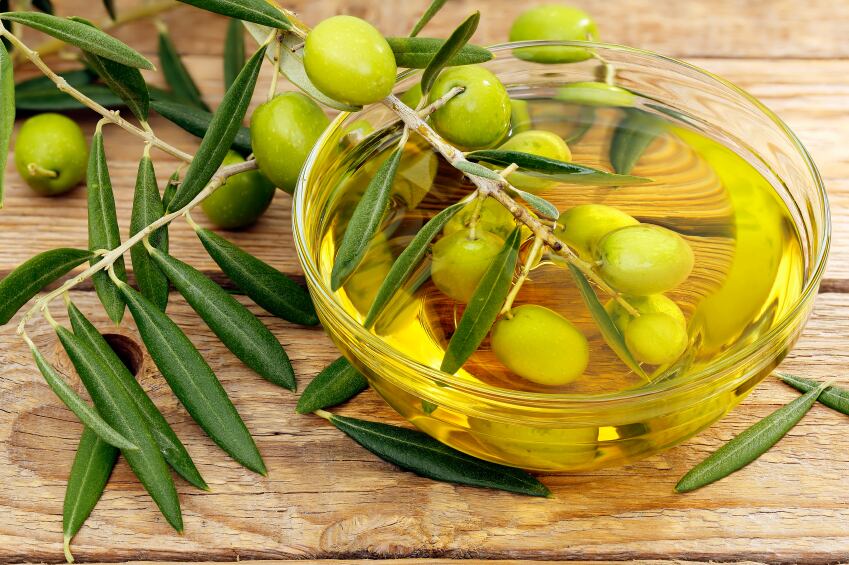This is because the phenols present in extra virgin olive oil are transferred from the oil, boosting the vegetables with healthy compounds exclusive to olive oil that are not naturally present in the vegetables themselves.
"We can confirm that frying is the method that produces the greatest associated increases in the phenolic fraction, which means an improvement in the cooking process although it increases the energy density by means of the absorbed oil," said lead researcher Samaniego.
Olive oil: A fat lot of good
Both olive oil and vegetables are important dietary sources of phenols that make up a staple of the Mediterranean diet, which has been associated with numerous health benefits such as reducing the risk of cancer and type two diabetes.
The researchers from the University of Granada set out to determine how the phenolic content and anti-oxidant capacity of the vegetables changed during four common domestic cooking methods, and which method would retain – or even boost – the healthy properties of the cooked vegetables.
Olive oil: A fat lot of good
The benefits of polyphenols present in olive oil are well-established. Predimed was a five-year interventionist study involving more than 7000 Spanish participants.
Subjects were assigned to one of three groups. The first was told to follow a low fat diet, the second a diet high in olive oil (5 soup spoons per day) and the third a diet high in nuts (100 g servings three times per week). The results revealed that the olive oil group was 30% less likely to experience a cardiovascular event, and the study is credited with providing convincing evidence of the benefits of the Mediterranean diet.
They determined the fat, moisture, total phenols and phenolic compounds as well as the antioxidant capacity of the vegetables before and after cooking.
The five most abundant phenols in the raw vegetables and those cooked without extra virgin olive oil were o-vanillin, hydroxyphenylacetic, chlorogenic and vanillic acids, and rutin, in tomatoes. But after being cooked in olive oil, the vegetables also contained oleuropein, hydroxytyrosol, tyrosol, pinoresinol, and p-coumaric and hydroxybenzoic acids.
“Deep frying and sautéing led to increased fat contents and total phenolic content, whereas both types of boiling reduced the same. The presence of extra virgin olive oil in cooking increased the phenolics

identified in the raw foods as oleuropein, pinoresinol, hydroxytyrosol and tyrosol, and the contents of vegetable phenolics such as chlorogenic acid and rutin,” write the authors.
The study
Samaniego et al. selected 120 g of four vegetables – potato, tomato, aubergine and pumpkin – which were either deep-fried; sautéed; boiled in water; or boiled in a mixture of water and olive oil.
For cooking, the proportion of vegetable to either water or oil was defined according to traditional recipes in order to represent common domestic cooking methods - a 5:1 proportion at 180 °C for deep-frying, a 0.5:1 proportion at 80–100 °C for sautéing and a 5:1 proportion at 100 °C for both types of boiling. In each instance, the vegetables were cooked for ten minutes, drained for five minutes and then immediately refrigerated for homogenisation.
Total phenolic content was determined using the Folin–Ciocalteu colorimetric method; individual phenol content by liquid chromatography (HPLC) while antioxidant capacity was measured using DPPH, FRAP and ABTS methods.
Results
Deep-frying resulted in the highest loss of moisture and highest fat gain while sautéing maintained similar moisture levels to the raw samples. Boiling tended to increase or not significantly change the moisture content and fat content increased only the oil in water mixture.
Total phenolic content increased for all four vegetables when deep-fried, for the pumpkin when sautéed and for the eggplant when boiled by both methods. There was a non-significant increase for the sautéed aubergine and tomato whereas phenolic content fell for the potato and pumpkin boiled by both methods.
But the researchers also noted a decrease in total phenolic content for the sautéed aubergine, especially of chlorogenic acid, which they say may be due to oxidation caused by exposure to air since the food is not completely submerged in oil.
All the cooking techniques increased the antioxidant capacity of the four vegetables, but deep-frying was the most effective followed by sautéing and then boiling. “Hydrothermal cooking methods can be recommended when the foodstuff is consumed together with the cooking water,” they wrote.
Source: Food Chemistry
Available online ahead of print; 1 Dec 2015, vol. 188, pp. 430–438, doi:10.1016/j.foodchem.2015.04.124
“Phenols and the antioxidant capacity of Mediterranean vegetables prepared with extra virgin olive oil using different domestic cooking techniques.”
Authors: Ramírez Anaya, J. P., Samaniego-Sánchez, C., Castañeda-Saucedo, M. C., Villalón-Mir, M., López-García de la Serrana
